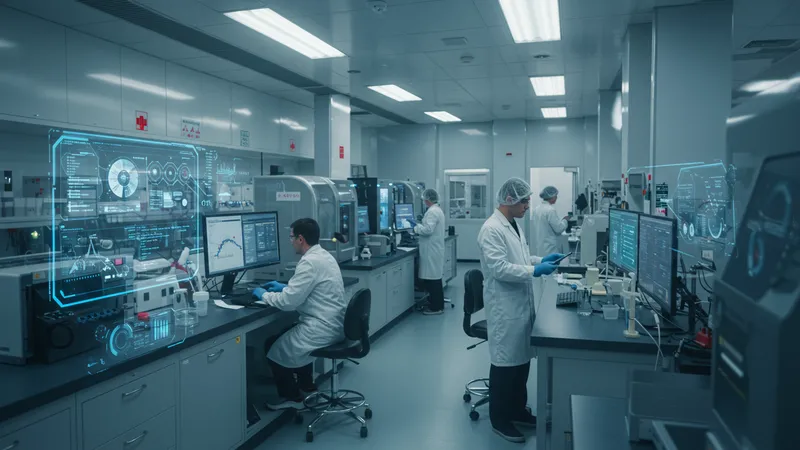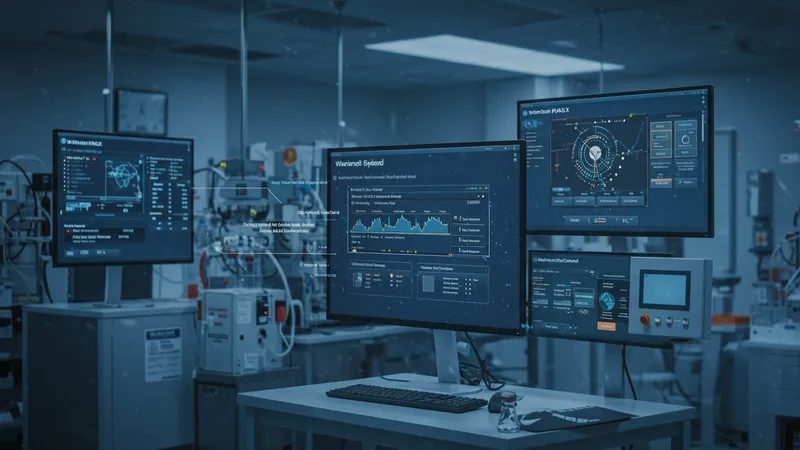

In the world of modern pharmaceutical manufacturing, the shift from paper-based documentation to digital batch records has become a distinguishing factor for efficiency, quality, and regulatory compliance. A digital batch record system is an advanced software platform that electronically captures, manages, and stores production data for each manufacturing batch. Instead of relying on physical documents, this method uses real-time digital input, allowing for instant access to historical production records, streamlined approval workflows, and integrated error checks throughout every step of the process.
By adopting a digital batch record system, pharmaceutical manufacturers can ensure their operations are more traceable, consistent, and compliant with regulatory standards. These systems are specifically designed to address the complexities of pharmaceutical production—such as strict quality controls, multi-step processes, and global regulatory demands—by providing transparent, auditable, and efficient batch documentation in a central, searchable format.

Digital batch record systems reduce the time required for batch review and release by automatically flagging deviations and ensuring records are both complete and compliant before approval. This automation not only minimizes the chance of human error but also eases the audit process for regulatory agencies. Compared to traditional paper methods, digital systems offer superior traceability and can drastically cut down on data entry bottlenecks, manual calculations, and review backlogs.
Choosing a system like Werum PAS-X or MasterControl ensures scalable integration with existing manufacturing and quality control tools, enabling seamless data flow throughout the production lifecycle. Many digital solutions also include analytics modules, empowering manufacturers to spot trends, investigate deviations, and make informed operational improvements in real-time. For example, embedded analytics in Rockwell FactoryTalk help identify efficiency gaps, while Sparta’s real-time data capture supports rapid batch release after quality review.
Another advantage is that digital batch records can be accessed securely from various locations, supporting global operations and remote audits. Centralization of documentation promotes consistency and facilitates collaboration, even across distributed manufacturing sites. Honeywell's Batch Historian, for instance, is engineered to scale from a single facility to multi-site enterprises with varied regulatory requirements.
While upfront costs for implementing these systems can be significant, the long-term savings—in time, compliance effort, reduction of errors, and improved operational insights—have made them a strategic investment for pharmaceutical manufacturers striving for global competitiveness. The ability to support evolving industry compliance, such as FDA 21 CFR Part 11, further reinforces the value of leading digital batch record vendors.
In summary, digital batch record systems like Werum PAS-X, MasterControl, TrackWise, Honeywell Batch Historian, and Rockwell FactoryTalk are transforming the landscape of pharmaceutical manufacturing. Their combined features enable not only regulatory compliance but also process optimization—but the intricacies of their features, integration capabilities, and data insights warrant a closer look. The deeper details reveal even more valuable insights ahead…
The most influential digital batch record systems distinguish themselves through tailored features developed specifically for the pharmaceutical industry. These systems go beyond standard data organization to offer advanced compliance standards, robust process controls, and sophisticated integration capabilities. Automation of calculations, deviation tracking, and signature capture streamline workflows and guarantee the integrity of every batch record.

For instance, solutions such as Werum PAS-X and MasterControl are recognized for customizable workflow engines that adapt to diverse production lines. These systems enable manufacturers to define multi-level approvals, enforce in-process checks, and implement automatic error alerts, which significantly reduces manual intervention and speeds up batch release.
Integration is another essential feature. Modern platforms can connect seamlessly with manufacturing execution systems (MES), laboratory information management systems (LIMS), and enterprise resource planning (ERP) solutions. This level of connectivity allows holistic visibility across quality, production, and supply chain functions—a critical advantage when managing complex pharmaceutical operations across several facilities or countries.
TrackWise and Rockwell FactoryTalk also incorporate mobile-friendly interfaces and cloud hosting options. These factors support global access, remote audits, and secure team collaboration, offering manufacturers flexibility to adapt to changing regulatory or operational requirements. As the pharmaceutical sector continues digital transformation, understanding these key system features is essential for effective selection and deployment.
Compliance is a critical aspect of pharmaceutical manufacturing, and digital batch record systems are engineered with this requirement at their core. Automated audit trails in tools like Werum PAS-X and Honeywell Batch Historian ensure every user action—changes, approvals, or annotations—is time-stamped and traceable. This aligns with regulatory expectations from agencies such as the FDA, EMA, and other global authorities that demand heightened record integrity and transparency.

A key advantage is conformance to 21 CFR Part 11, which sets standards for electronic records and electronic signatures in the pharmaceutical industry. Leading systems validate user identities, require multilevel authentication, and safeguard data via encryption and secure backups. These controls not only safeguard sensitive information but also guarantee that records have not been tampered with—an essential factor during routine audits or product recalls.
Additionally, digital platforms can automatically enforce completion of required fields, prohibit out-of-sequence processing, and generate nonconformance alerts. TrackWise exemplifies this by flagging incomplete documentation and requiring user resolution before batch advancement. This systematic approach minimizes documentation errors and supports real-time decision-making by quality assurance personnel.
The cumulative effect of these compliance and data integrity features is a significant reduction in production delays and compliance-related nonconformities. Pharmaceutical manufacturers experience fewer regulatory observations and improved readiness for inspections, which enhances brand reputation and supports business growth. As these capabilities become standard, their nuanced application in day-to-day operations only grows in importance.
Integration with existing enterprise systems and scalability are top priorities when selecting a digital batch record system for modern pharmaceutical manufacturing. Implementations must accommodate a wide array of hardware, software, and process complexities found in diversified manufacturing environments. Platforms like MasterControl and Rockwell FactoryTalk are developed to support both plug-and-play with existing infrastructures and extensibility for future requirements.

As manufacturers expand geographically or add new product lines, the ability to scale digital batch record solutions efficiently becomes paramount. Cloud-hosted options, as available in TrackWise, facilitate quick adaptation to changing plant requirements without large on-premises IT investments. These systems can be deployed across multiple locations, ensuring consistent batch recordkeeping globally, while centralizing updates and security protocols.
The integration between batch records and manufacturing equipment (e.g., distributed control systems or automated samplers) opens opportunities for direct data capture, which improves accuracy and speeds quality checks. This seamless connection supports initiatives like continuous manufacturing and real-time release testing, which are growing trends among advanced pharmaceutical producers.
Properly managed, systemic integration unlocks powerful cross-functional insights. Data trends identified through batch record analytics can inform process optimization, root cause analysis, and predictive maintenance initiatives. As digital batch record systems continue to evolve, their ability to accommodate both current and future manufacturing needs provides manufacturers with an adaptable, future-proof solution.
The transition to digital batch record systems unlocks tangible operational benefits for pharmaceutical manufacturers. Reduced batch review times accelerate product release, while automated compliance checks decrease the likelihood of costly errors. Portals for secure access enable global collaboration, and process efficiency improvements translate directly into productivity gains throughout the manufacturing lifecycle.

Leaders like Werum PAS-X and Honeywell Batch Historian are already deploying advanced analytics and artificial intelligence modules to leverage captured data for predictive quality management. These advancements help identify process deviations before they impact production, further strengthening quality assurance strategies.
Increasingly, digital batch record systems will play a central role in meeting the evolving demands for traceability and decentralization in pharmaceutical production. Remote audits, supply chain transparency, and continuous manufacturing initiatives are all supported by the real-time, accessible, and secure documentation these systems offer. The adaptability of platforms like Rockwell FactoryTalk InnovationSuite and TrackWise positions manufacturers to respond quickly to regulatory changes or market needs.
As digital technology continues to transform the pharmaceutical sector, investment in robust, configurable digital batch record solutions is emerging as a fundamental component of operational excellence. By mastering both the foundational and evolving capabilities of these systems, pharmaceutical manufacturers are better equipped to ensure product quality, regulatory compliance, and long-term competitiveness in a rapidly changing global industry.